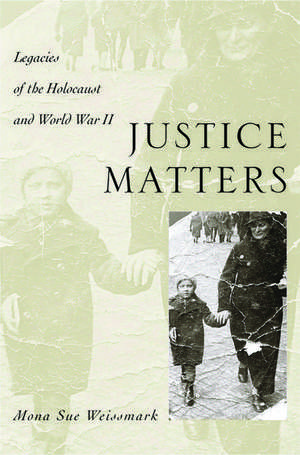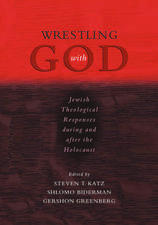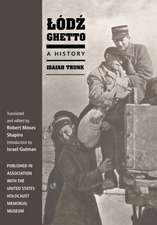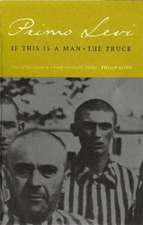Justice Matters: Legacies of the Holocaust and World War II
Autor Mona Sue Weissmarken Limba Engleză Hardback – 3 iun 2004
Preț: 346.31 lei
Preț vechi: 424.67 lei
-18% Nou
Puncte Express: 519
Preț estimativ în valută:
66.28€ • 68.94$ • 55.55£
66.28€ • 68.94$ • 55.55£
Carte tipărită la comandă
Livrare economică 03-08 martie
Preluare comenzi: 021 569.72.76
Specificații
ISBN-13: 9780195157574
ISBN-10: 0195157575
Pagini: 208
Dimensiuni: 146 x 216 x 21 mm
Greutate: 0.39 kg
Editura: Oxford University Press
Colecția OUP USA
Locul publicării:New York, United States
ISBN-10: 0195157575
Pagini: 208
Dimensiuni: 146 x 216 x 21 mm
Greutate: 0.39 kg
Editura: Oxford University Press
Colecția OUP USA
Locul publicării:New York, United States
Notă biografică
Monica Sue Weissmark received her Ph.D. from the University of Pennsylvania and completed postdoctoral training at Harvard University. She headed the Harvard Holocaust Conference Research Project and was on the faculty of the Harvard University Medical School. She is an associate professor of psychology and the founder and director of the Mansfield Institute for Social Justice at Roosevelt University. Her work on the Holocaust has been featured on National Public Radio, on major television networks such as Dateline, NBC and Sunday Morning News with Charles Kuralt, CBS, and in publications such as the New York Times, the Chicago Tribune, the Boston Herald, Psychology Today, Ms. Magazine and Harvard Magazine as well as in academic publications.


















